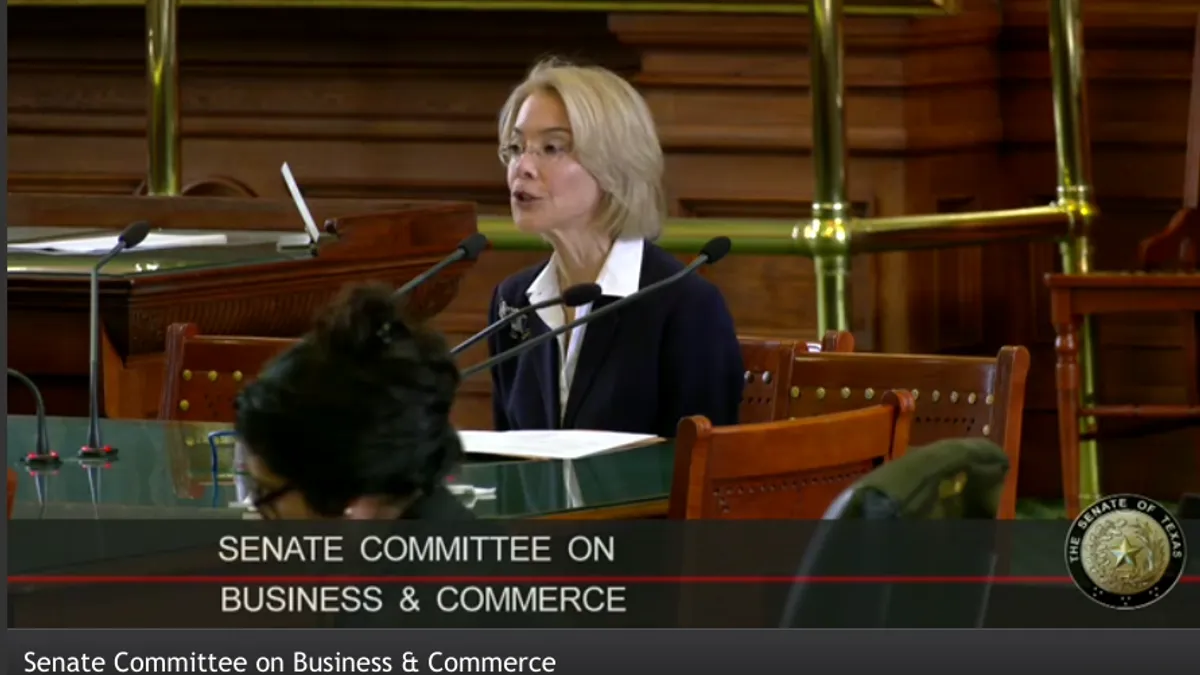Texas senators discussing an overhaul of the state’s energy market on Thursday expressed concern for how long it might take to implement a new Performance Credit Mechanism endorsed by regulators.
“We’re looking at three to four years,” Sen. José Menéndez, D, said during a Committee on Business and Commerce hearing.
Menéndez was responding to testimony from Rebecca Klein, the former chairman of the Public Utility Commission of Texas who oversaw the restructuring of the state’s power sector and stepped down from the PUCT in 2004. Klein is now an independent consultant.
Lawmakers should expect implementation of a PCM to take 50% longer than projected, Klein warned, based on her past experiences. Whatever new market model is chosen will need to work alongside other efforts that the Electric Reliability Council of Texas, the state’s grid operator, is already working on or plans to implement over the next several years, she said.
Senators were discussing the potential for an 18-month implementation of the new mechanism. ERCOT officials previously estimated implementation could take four years.
“You'd have to jibe the process for the new market model with what ERCOT’s calendar of events is currently, to make sure it harmonizes and aligns,” Klein said.
Regulators in January voted unanimously to adopt the PCM, which would be a credit earned by generators in ERCOT based on their availability during hours of greatest risk to the system. The goal is to boost system reliability but there has been concern that the credit would take years to set in place. Texas lawmakers must authorize implementation of the PCM.
Lawmakers directed the PUCT to ensure grid reliability and boost dispatchable generation when it adopted Senate Bill 3 in 2021, following the devastating impacts of Winter Storm Uri.
Sen. Charles Schwertner, R, chairman of the Committee on Business and Commerce, said regulators are working “diligently” but worried the PCM may take too long to implement.
“Adding new complexity, new endeavors, novel endeavors, does, in my mind at least, add to the concern of actually getting the job done, actually getting what we need in the timeframe we need,” Schwertner said.
If lawmakers decide to implement the PCM, “it would be two years before we'd have the definitive revenue streams that the finance community could determine whether or not they want to invest in,” Menéndez said. “And then they decide to go build, so we're looking at three, four years out. And the concern that I hear from so many is that the growth [in energy demand] is exponential.”
Energy efficiency and demand response could be much faster resources to implement, Menéndez said. “We could start doing this today, tomorrow, the next day, to help make our residential customers energy efficient and have demand response like our business community,” he said.
“I agree with you, Senator, and I'm so glad to see that the PUC is going to be working on that and focusing on that,” Klein said.
Commissioner Kathleen Jackson, the PUCT’s newest member, was appointed last year by Gov. Greg Abbott and has been tasked with leading the commission’s energy efficiency efforts. Texas has faced criticism in the past for its lack of focus on efficiency.
In October, regulators denied a bid by Sierra Club to have utilities increase energy efficiency savings goals. The proposal would have tasked utilities with nearly doubling their peak demand goals over a three-year period.













